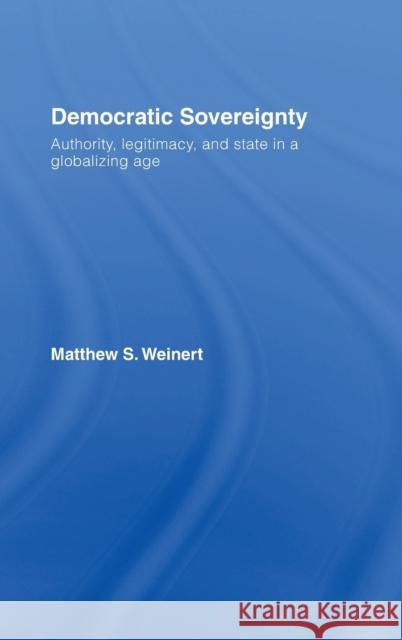Democratic Sovereignty: Authority, Legitimacy, and State in a Globalizing Age » książka
Democratic Sovereignty: Authority, Legitimacy, and State in a Globalizing Age
ISBN-13: 9780415771689 / Angielski / Twarda / 2006 / 244 str.
Democratic Sovereignty: Authority, Legitimacy, and State in a Globalizing Age
ISBN-13: 9780415771689 / Angielski / Twarda / 2006 / 244 str.
(netto: 723,00 VAT: 5%)
Najniższa cena z 30 dni: 730,42
ok. 16-18 dni roboczych.
Darmowa dostawa!
This new book argues that sovereignty, generally defined as the supreme authority in a political community, has a neglected democratic dimension that highlights the expansion of substantive individual rights and freedoms at home and abroad. Offering an historically based assessment of sovereignty that neither reifies the state nor argues sovereignty and the state are eroding under globalizing processes, the book maintains that sovereignty norms have continually changed throughout the history of the sovereign state. Matthew Weinert links international legal developments that restrict and coordinate sovereignty practices with an ethical undercurrent in International Relations, one such example is the creation of the International Criminal Court in 2002. Drawing on seven additional historical case studies, he outlines how campaigns informed by a commitment to the common good, or at the very least by opposition to harmful state policies, can be and have been efficacious in transforming the normative basis of sovereignty. Democratic Sovereignty will be of great interest to students working in the fields of sovereignty, international history, ethics, globalization and international relations.











